PDP leader Naeem Akhter tells Kashmir Life in an interview
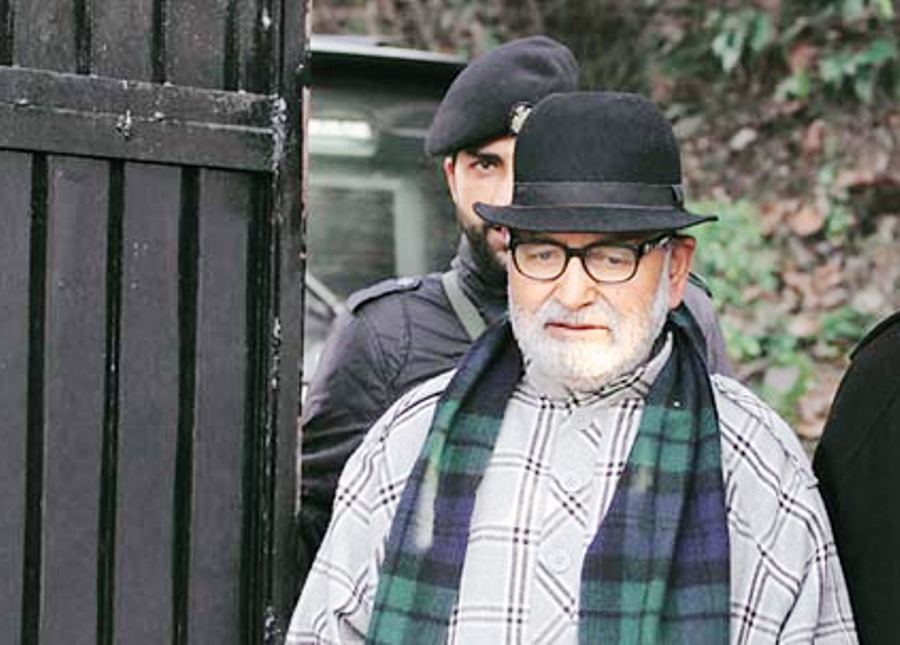
KASHMIR LIFE (KL): An officer, politician, then a minister and finally a prisoner. How has been this long journey?
NAEEM AKHTAR (NA): The journey has been bumpy, but it has been very rewarding in many senses. At the end of the day, I felt that I didn’t have to be apologetic or make a compromise on what I felt was correct.
I have a modest background, son of a school teacher who studied in state-run schools. At the age of 20, I wrote one examination for the Public Service Commission and got appointed as Information officer. I was press officer to Sheikh sahib in 1976. My challenges came with rewards and costs. My first political victimisation came from Sheikh Sahib himself post 1977 when I was accused of being a supporter of Shamim Mohammad Shamim. Post-1984, in Ghulam Mohammad Shah’s time, I was seen too close to Farooq Abdullah and till the time GM Shah’s government fell, I didn’t have a posting or a salary.
In 1990, a bride was gang-raped and left injured along with her husband the very day she was married. It shook everyone and somehow I wrote a few pages and it led to 72 days of agitation. A group of officers including me were dismissed from the service. That order was revoked after employees’ agitation.
Post-1996, I had many friends like Ashok Jaitley. He once asked me: ‘Why is Farooq Abdullah angry at you? Have you been writing against them?’ I said that I have been writing, not against them but the facts. Eventually, I ended up in the dog-house until Mufti Sahib came (to power) in 2002.
Then I took another decision in my life, I didn’t opt for IAS, which is still the only example of its kind. Later, I also opted for voluntary retirement in 2008 without any intentions of joining politics. Then, I was sucked into politics through PDP when Mufti Sahab one day informed me on the phone that I have been appointed as spokesman of the party. I had always found resonance in Mufti’s idea of resolution by connecting Kashmir with its neighbours.
KL: So how was your jail yatra?
NA: First we were taken to the Centaur Hotel where we were about 40 people from all backgrounds and parties. In November, we were shifted to the MLA hostel. Six months later when I completed the detention under Public Safety Act, I was shifted to a house on Gupkar Road where my jail mates were Sagar Sahab and Sartaj Madni. In the MLA Hostel and Centaur Hotel, we were never permitted to walk outside the corridors. We would generally meet in the Dining Hall.
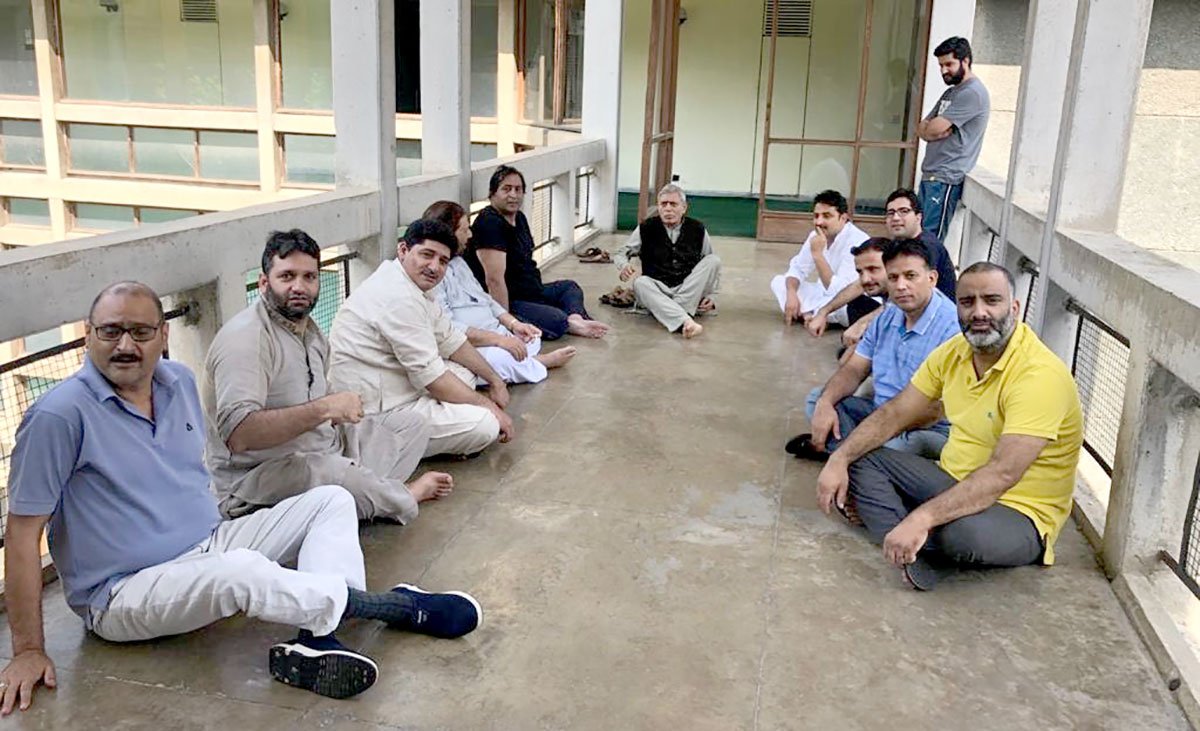
The jail was very educative. It was a message in different levels. When I landed at the Centaur Hotel, my friends asked me about my views. I told them the government has in its wisdom demonetized us as currency and sent to the jails to shred us. I don’t see a change in the Government of India’s attitude towards the mainstream political parties. There was complete mistrust of the Government of India in anyone who was a Kashmiri Muslim. That has come to me as a message from my conscience. It will take a herculean effort for Delhi to restore that faith. For me, it will take many births to believe that someone from Delhi means what he says.
Perhaps, Kashmir was too fractious, politically. A democratic context was required. But unfortunately, we carried out a personal vendetta against each other; at individual and party levels. In the last year, they put us all together long enough that we came to know and understand each other better. In jail, I saw the most affectionate side of Ali Mohammad Sagar which maybe people might have never seen. We were three – Sartaj Madni, Sagar Sahab and me. He would look after both of us as his family.
There was Sajad Lone, Yasr, Waheed, Muzaffar, Shah Feasal and countless many others. In the case of Sajad, for instance, we had many misgivings about him although he was my cabinet colleague for three years. He too had many apprehensions and reservations about me. And we looked at each other’s parties with the same suspicion.
But ultimately, we rediscovered that we are Kashmiris, and Muslims and the Indian state, rather the nation of India views us just like that. The important lesson from the jail is that we have now no room to feel like anything other than Kashmiri Muslims and side by our oppressed people.
KL: So you did not take your political fights to the jail?
NA: That is the essence of being a Kashmiri. That was the essence of being on the same platform; being victims. We are all victims of history and we should understand, or else, we will be doomed. Even those who do not agree with these views and have tried to take a different route will also find this one day like a Shakespearian tragedy in which none of the actors knows his or her fate. But the audience is always aware that they are going to be killed.
KL: Was there some feeling in the imprisoned political class that they were also taking people to jails?
NA: Yes, I plead guilty to that but that is inevitable for the space that we occupied. We essentially lived in a bubble. We tried to sell India to Kashmir, but it was not ready to get sold into Kashmir as an idea, the main owner of this product is not honest either in its intent or in its purpose. That needed a shock like this to understand.
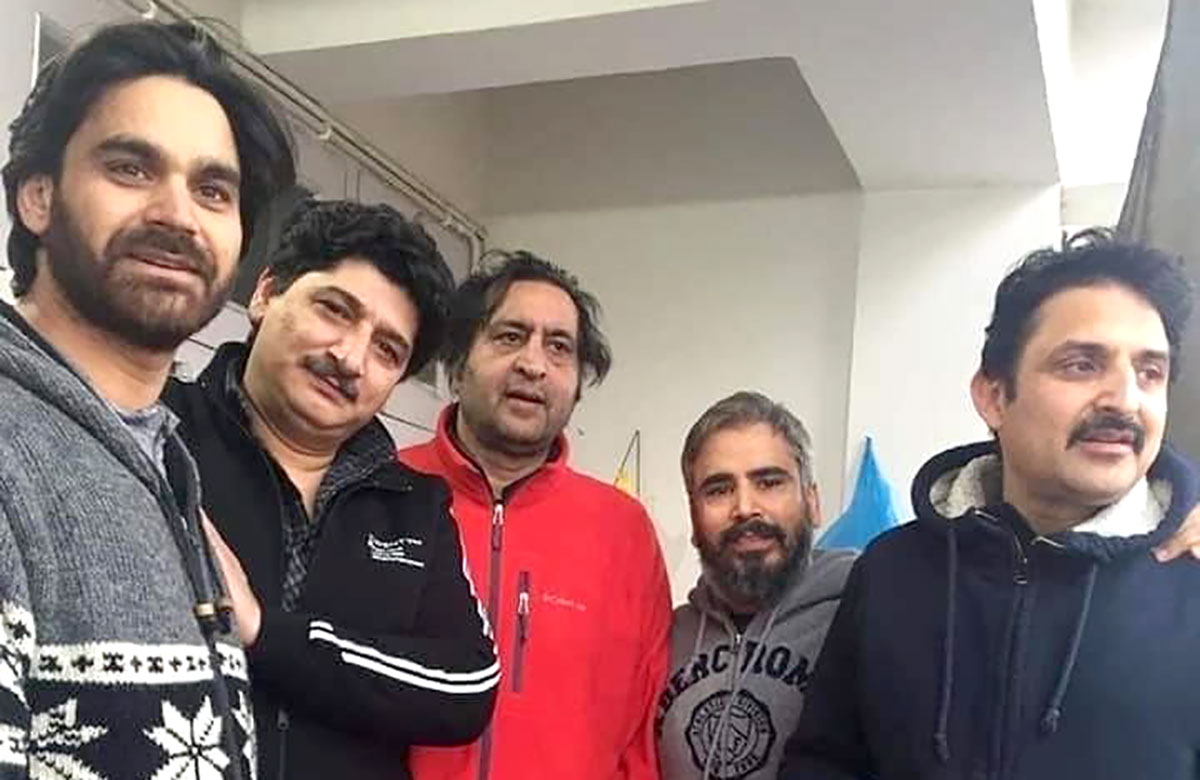
I believe that politics has not ended in Kashmir, it has now started. I will be the last man to believe that the epitaph of Kashmir politics has been written. It will mean channelizing the aspirations of the people and being not apologetic about it. It will also need – in Kashmir, only the politics of unity between us, all political parties, can regain some popular credibility in our effort.
KL: Which unity are you talking about? When was it displayed the last time after most of you came out?
NA: People want that there should be a possibility of resistance within the system. The BJP has tried to wipe off the constitutional space at a time when Kashmir problem had moved into the constitutional space about the guarantees granted to Jammu and Kashmir. But they scrapped the constitution itself.
Article 370 offered comfort to neighbours and contestants. Pakistan has made it a big issue although it is a constitutional debate. China has gone to UN SC three times. In my opinion, the basic apprehension of them is also the demographic change in Kashmir and Ladakh.
One cant trivialise the importance of such a day in which Kashmir was undone as a place, as a political entity. It was not scrapping an article of constitution alone, it was scrapping a distinct geographic, political and cultural entity.
KL: Do you think it is a new Great Game?
NA: Perhaps I was the first person to have said that in February 2018. My belief is that Kashmir is now like the palm of the world. I might be speaking too big, but you will outlive me and see that the fate-lines in this palm will determine the shape of the new world around us as no other place will.
We have unfortunately ended up building a Great Wall of China around India, which no one is telling the Prime Minister. If we see the situation, India has no escape. If we see the politico- strategic and military position, India is under a siege. The only route to come out of this is Kashmir and Pakistan. And for that, you have to address Kashmir, satisfy its aspirations. Pakistan will fall in line.
The Prime Minister of India has to lead South Asia. That is his natural role and that makes Kashmir a pivot of that. Unfortunately, the SAARC has been abandoned in favour of some other arrangements which are not going to help either our security or our economy.
KL: But how do you see the politics taking off in Kashmir?
NA: Democratic constitutional resistance, unity and all other democratic tools are the ways to fight back. It is a huge task given the change in India, given the fact that the first foundation stone brick laid in the Hindu Rashtra was Kashmir.
We can’t do anything; it is the manifesto of the ruling party that has got its votes. Votes have actually replaced constitutional safeguards.
We Kashmiris and Muslims need to understand where we stand, and then only we can rise. We have to come out of old make beliefs.
KL: Is judiciary a way out or negotiation?
NA: Political struggle is the answer. That is what can bring in some relief. Why do we have politicians if courts would do everything? Ironically, court decisions have already been violated. The last decision on Article 370 by a 7-member bench was that it has attained permanence. Now it has been already violated through a presidential order. The mechanism used was just a presidential order to revoke the whole system that provided it.
I watched it on TV and the argument was that the constituent assembly is equal to the state assembly, and the state assembly equals the governor, and the governor is equal to the central government so, the central government is equal to the Parliament. So the constitutional assembly has revoked the abrogation of Article 370. While watching this on TV, I was reminded of the famous Johnny Walker scene in which he exchanged Barfi for Jaleebi, to Ladoo and Paida and finally walks out with the sweet box without paying because he had never paid for the Barfi in the first place.
KL: In the last year, various initiatives were taken, especially after October 2019. Which one of them is the most serious?
NA: All of them because they are part of a package to undo Kashmir, to replace the population here by other religions.
KL: In the twenty-first century, is changing demography possible?
NA: Jammu’s demography has already been changed in 1947 by cleansing it of Muslims. Now I feel the Dogras are in for the same shock. They will lose their identity. From the experience of being an education minister, I tell you that from Jammu to Kathua all the government schools have less than 20 per cent proportion of local students up to tenth class. The rest are children of labourers, and factory workers. The first brunt of this wave will make its landfall in Jammu. The identity of Jammu and history has been directly assaulted.
Unlike Kashmir, Jammu lacks a distinct identity in its dress cuisine, arts or crafts like Kashmir. They are much akin to Punjabis, Himachalis and they have greater interactions with them. I think more people speak Punjabi than Dogri in Jammu.
Jammu’s biggest contribution to South Asia was that it had determined the northern borders of South Asia. The fact is that Jammu has given this to South Asia. BJP didn’t leave a single rock unturned to undo the Dogra Empire. They slashed off what Dogra’s had done by annexing Ladakh.
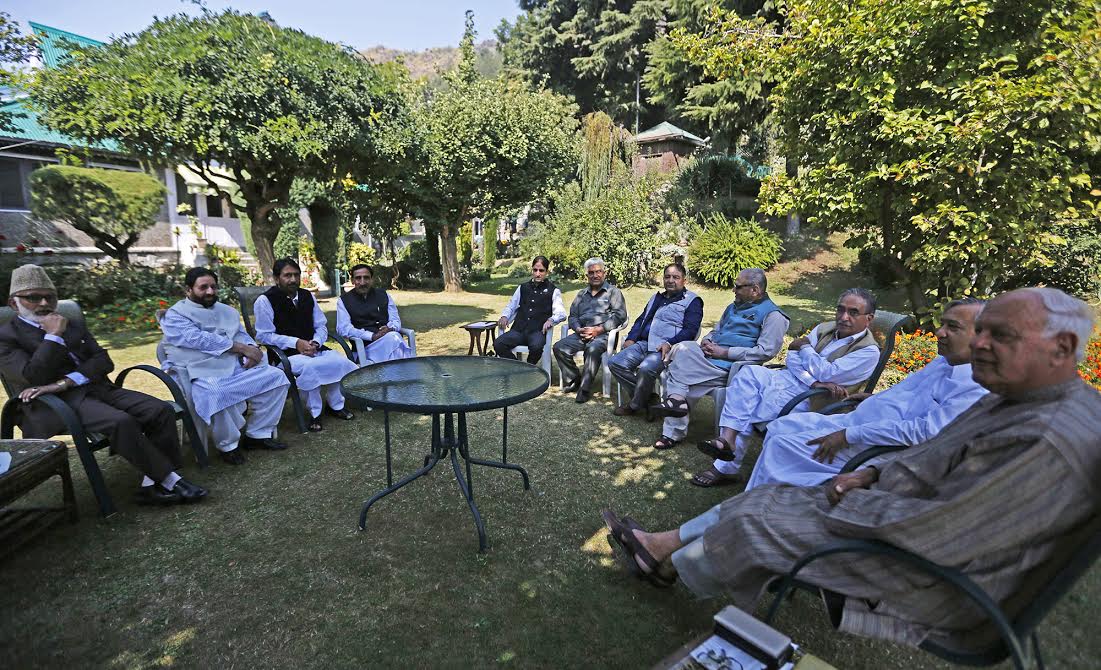
The political divide will continue to go the other way in Kashmir. However, Jammu and Kashmir will always continue to feel differently so far as politics is concerned, especially in view of the sharpening of the Hindutva ideology. In that, it is unfair to keep the two tied together. Unless it is to help hold Kashmir through the Jammu bureaucracy, why should they punish Jammu for Kashmir? In my thinking, why should Jammu suffer for us? Why not give them representation, a Chief Minister, a state? Then you can deal with Kashmir as you please because your ‘special treatment’ is for Kashmir. Convert the civil secretariat into a unified headquarter if every problem in Kashmir is solved through security forces and police? Why miss this precious space.
Since political parties are to remain irrelevant, and the government wants to go directly to the so-called grassroots, the Sarpanch, and solve the problem. Please do that. Why are not you utilising them in governance and are only getting them killed.
KL: Politics is possible because of political parties. Where is your party?
NA: Our party is in detention. Mehbooba Mufti is formally under detention. First, there was an attempt to demolish the party, which was succeeded to some extent.
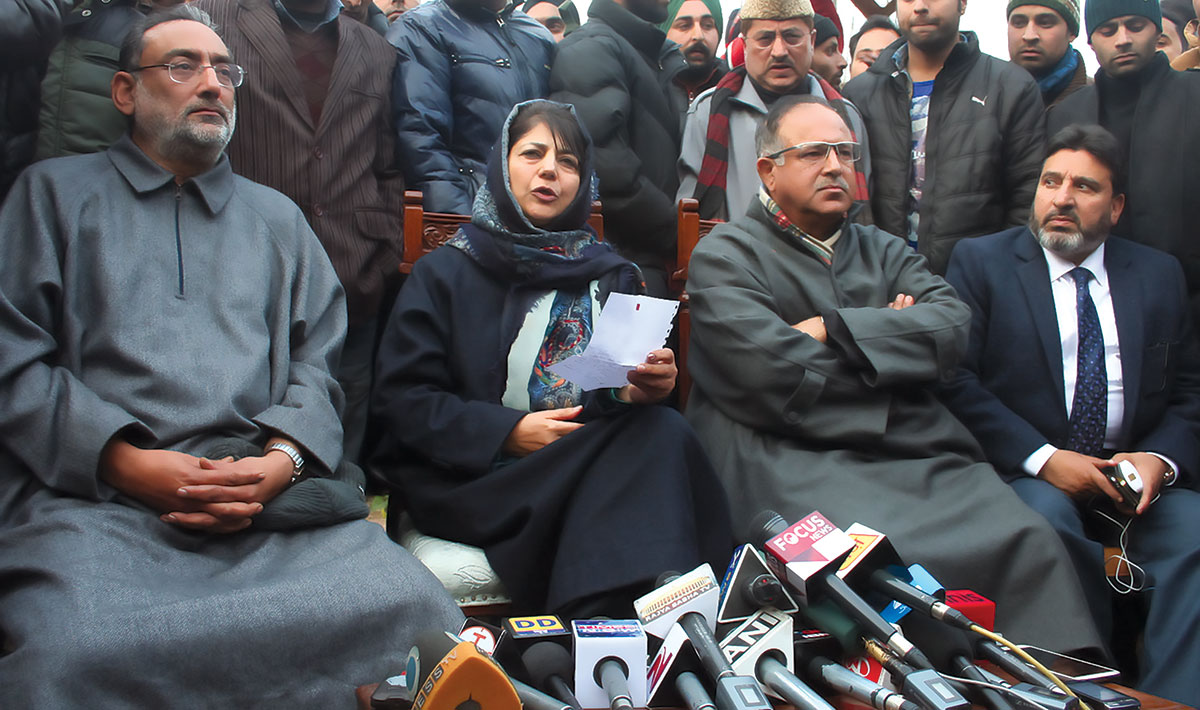
The idea of a political party is not about the people in its fold alone but the ability to channelize the people’s feelings and aspirations, which we think Mehbooba Mufti is able to do. All her colleagues who didn’t fall to the temptations or pressures are under house arrest. Most of those who were set free are still under house arrest. On a lighter vein, I found myself in the tiniest jail after one year of arrest in this rented house where my wife is my warden, which is not a romantic idea, and the policeman controls the gate.
(Syed Samreen processed the interview)















